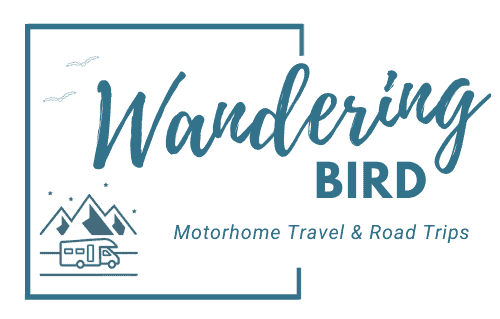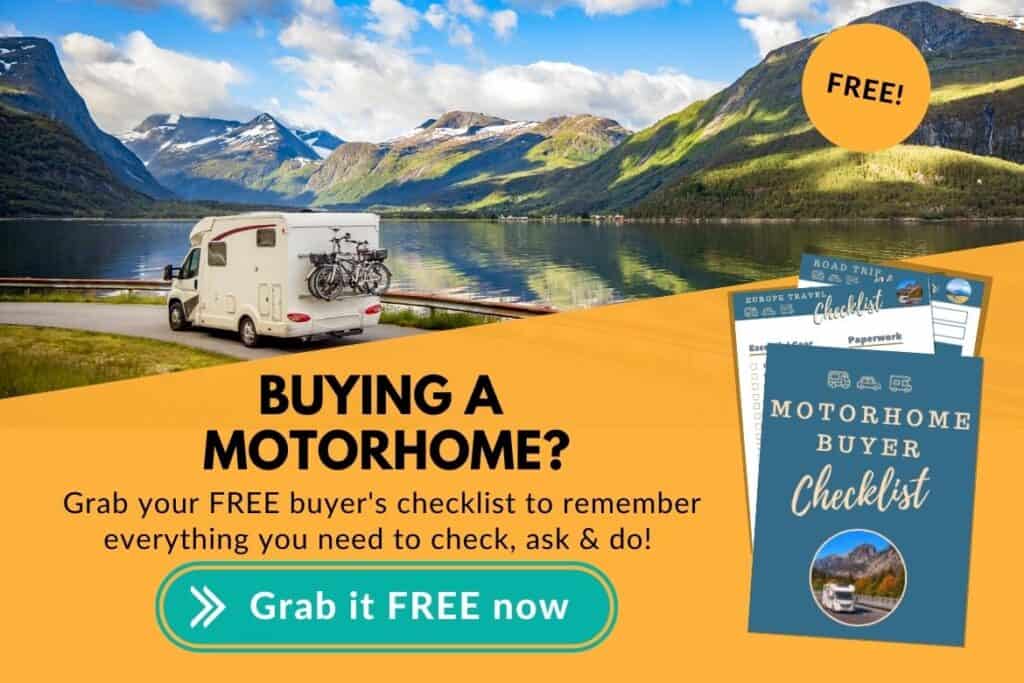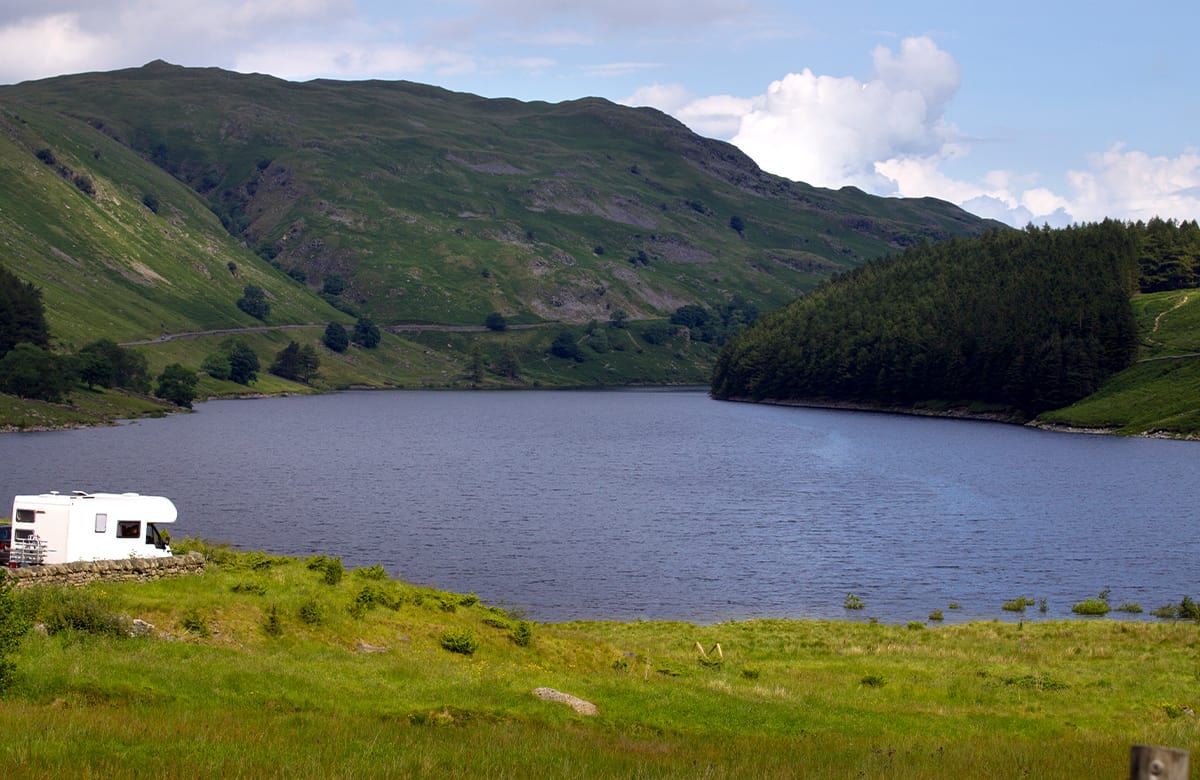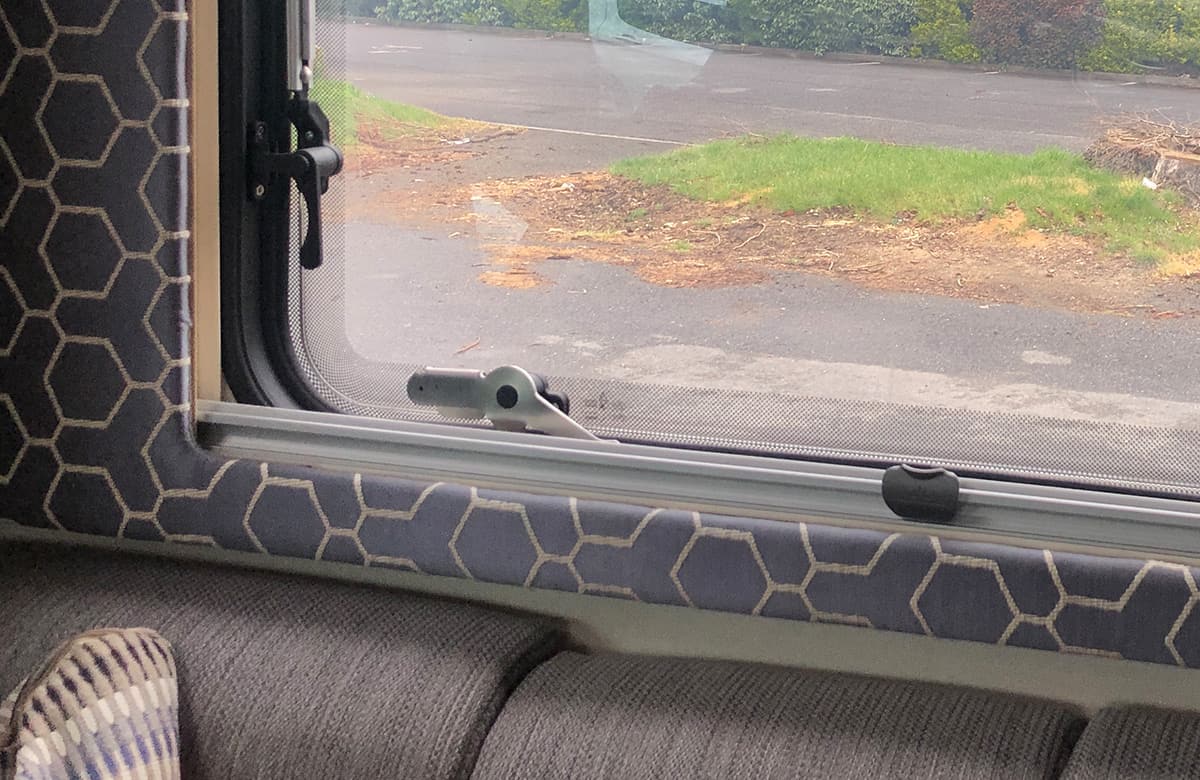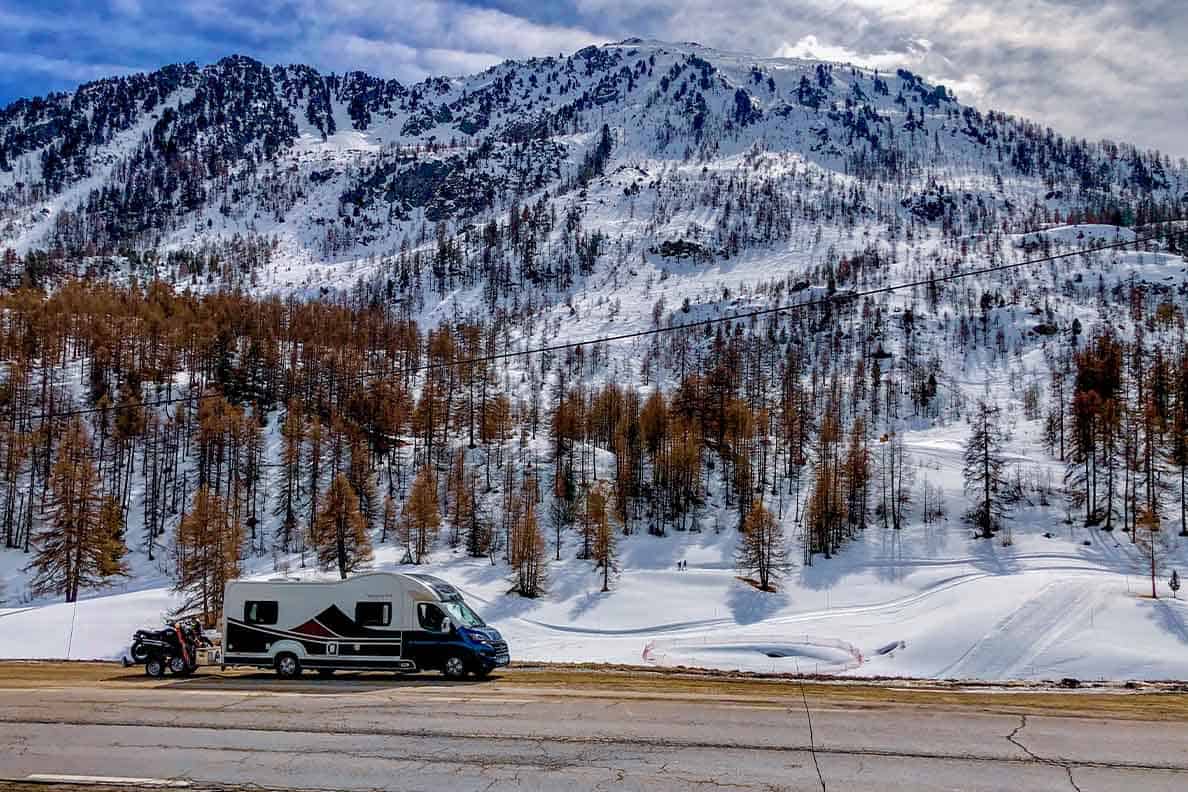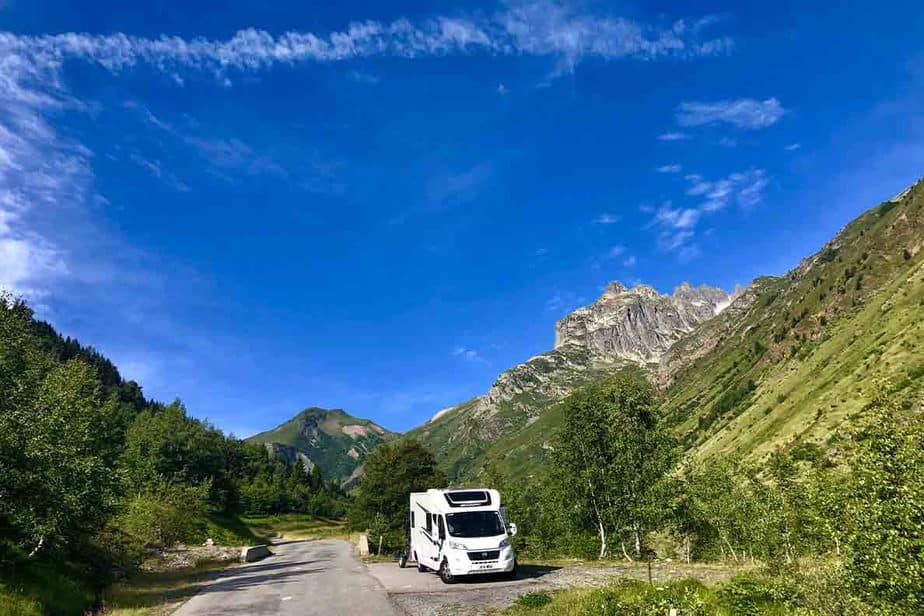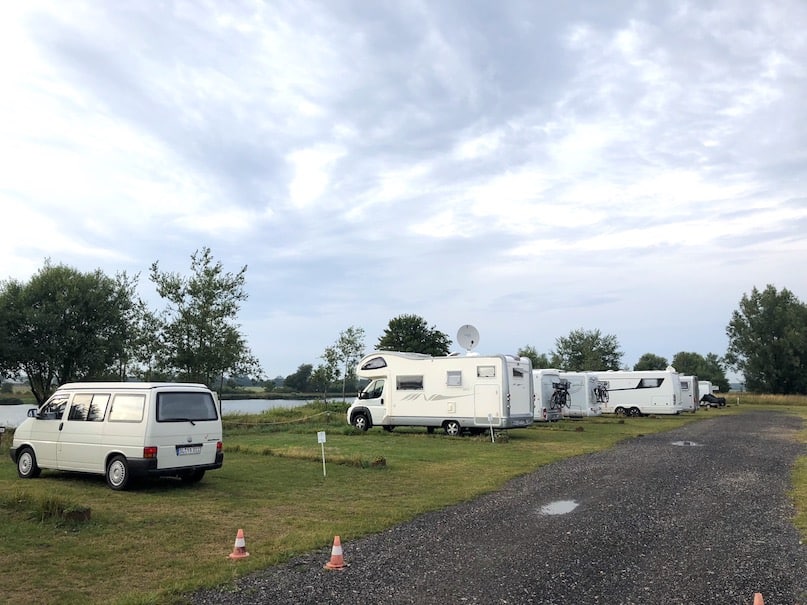How to sell a motorhome- step by step guide
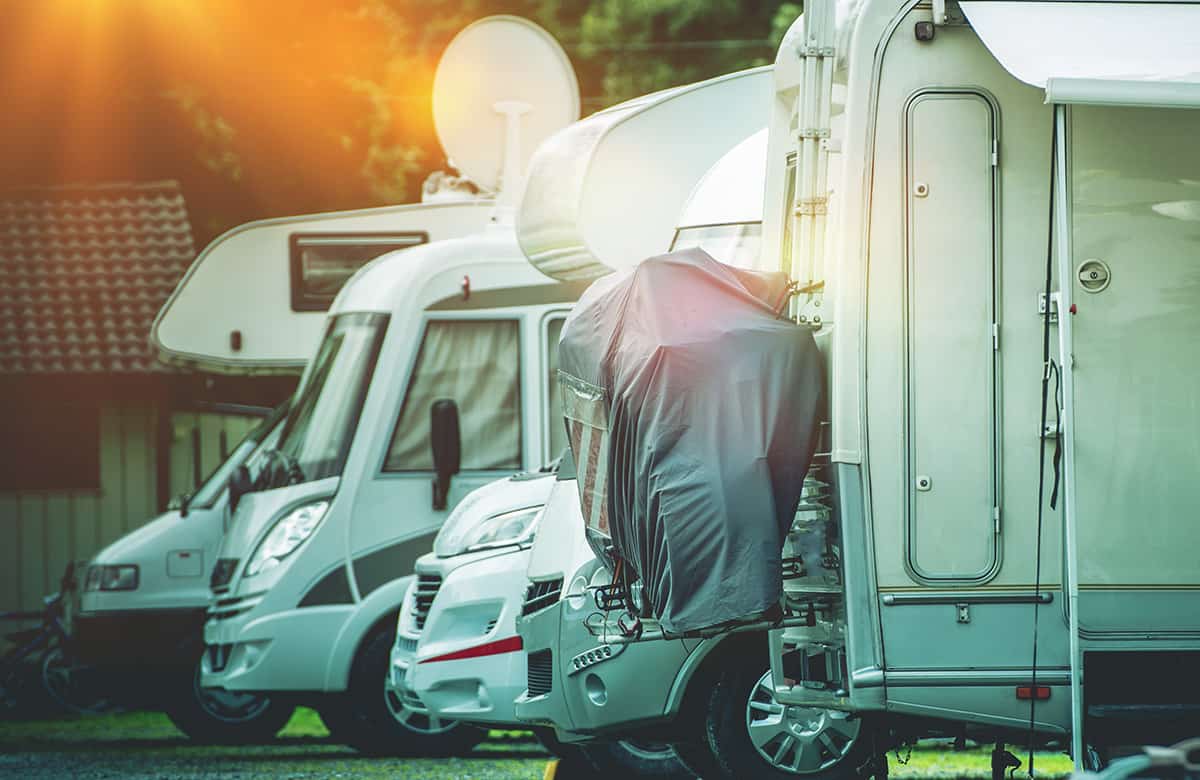
Wondering how to sell a motorhome or campervan? Whether you want to sell your motorhome fast, privately, or part exchange it at a dealer, there are some things to know. Here are the main ways to sell your motorhome and things to consider along the way.
*We work hard to make this the best motorhome travel blog and road trip website possible, full of helpful content for you. The website is supported by our readers, so if you buy through links on this site we may earn a commission- at no extra cost to you. All opinions remain our own.
If you find this post useful, you can also treat us to a coffee – we promise to enjoy it while creating more useful content like this- we might even indulge in a biscuit (or two!)
JUMP AHEAD TO...
How to sell a motorhome
Whether you’re an experienced owner or brand new to motorhomes, at some point, you’ll probably consider selling your motorhome.
Either you’ll realise it was completely the wrong layout for you (which is what happened with our first motorhome), or you’ll decide to upsize or downsize (which is what we did after our
second, when we downsized from over 3.5 tonnes to under!)
Or you might simply decide that motorhoming is no longer for you and move on to other
hobbies.
How to sell my motorhome- watch the video
Prefer video to reading? Watch the video below on the best ways to sell your motorhome fast, privately or cheaply (or keep reading below to get even more motorhome selling tips)
What is the best way to sell a motorhome?
Broadly speaking, there are 4 main ways to sell your motorhome or camper:
- To a dealer– either in part exchange or sometimes outright. You may have more luck with getting them to buy it outright during the summer months when there is more demand and a dealer has more chance of selling your old motorhome on.
- Via a broker– A broker will try to sell your van for you on a ‘sale or return’ basis. If they sell the vehicle, they will take a commission, but they will also deal with the task of advertising, meeting potential buyers, test drives, paperwork and all the other difficult parts about selling a vehicle.
- Privately– online or ad – Selling a motorhome privately is still a popular choice and you have two main ways to do this- Online or physical advertising. Or word of mouth I suppose. There are plenty of websites, forums and groups which allow you to list your motorhome for sale online. You could also put an advert in a local shop or specialist magazine. Nearly all charge a fee – some charge more than others, but these are generally more popular and reputable locations. You will need to include lots of photos of your vehicle, and as much detail as possible. The upsides of selling privately are you can get more money. The downsides are dealing with potential buyers and also potential fraudsters.
- At an auction – You can list your motorhome or camper to be sold at auction. Remember that, although it will sell quickly and will usually be ‘sold as seen’ you are unlikely to get the best price and you must also pay a commission.
Selling a motorhome via a dealership
The first step to selling your motorhome to a dealer is to contact several dealerships and ask them if they are interested in buying your vehicle. Often, they will only be interested as a part-exchange, but there are times when they’ll buy it outright- if it’s a sought-after model (or after a global pandemic when dealers were struggling to keep up with demand!)
Pros and cons of selling your motorhome to a dealer
The advantages of selling to a dealer is that the transaction is generally quick and easy (you
don’t need to deal with ‘tyre-kickers’ or handle 5000 phone calls), you often don’t need to arrange your own motorhome habitation check and they can help you organise all the paperwork. You will probably feel more at ease dealing with a reputable dealer than a potential fraudster.
The downside is that you will rarely get as much money as you will if you sell it privately.
If you’re planning to buy another van, I would always recommend using a dealer- it’s so much easier and you can often get extras thrown in, like a solar panel, bike rack or awning fitted. You can also play dealers off against each other, if you can find two or three with a motorhome you want to exchange for.
Expect the dealer to ask a LOT of questions when you initially contact them about a sale- things like the VIN number of your motorhome, mileage, condition, extras, manuals- everything a potential customer might want to know. They will probably also want to see plenty of pictures before offering you a quote.
HOWEVER, if you have bought an ex-hire vehicle, you’ll find dealerships are often reluctant to take them. We made this mistake with our second van and were unable to part-ex it. Apparently, buyers are concerned about vehicles that have been ex-hire in the past (which is silly in my opinion as we left that vehicle in a better state than we bought it in!)
So we had to sell our second vehicle privately, which wasn’t the end of the world but was a snag we weren’t anticipating. It meant we had to buy the motorhome we wanted before it sold and then we ended up with two vans for a while, which was a pain for storage and motorhome insurance!
How to sell a motorhome using a broker
A motorhome broker puts your motorhome or campervan onto their books and tries to find a suitable buyer. You don’t get any money until they sell the motorhome and then they take their commission out of the sale price.
Pros and Cons of selling a motorhome via a broker
The advantages of selling with a broker are that you will usually get a better price than if you part-exchange with a dealer, BUT still not as much as if you sell privately (after all, they’re doing all the work.)
The downsides are:
- you have to wait for the vehicle to sell before you get any money
- you might have to keep paying loans or tax (depending on terms of the
broker) until it sells - you might have to pay for any maintenance which is needed whilst it’s in the
brokers care - There are also plenty of horror stories about thieves posing as brokers and
then stealing the vehicle.
Make sure you get the broker to assume all responsibility (in writing) for insurance, both for storing the vehicle and for any test drives they may do. If they can’t insure your motorhome whilst it’s in their possession, go elsewhere and find someone who can.
It’s important to do plenty of checks before you select a broker and only go with someone who has been recommended to you or who has a set address where you can view the motorhomes on sale. Get everything in writing, including how quickly you will receive your money after the sale, what price you want to sell for (after commission), how much commission you are paying the broker etc.
We’ve never used a broker ourselves, but personally, we’d probably choose to sell a motorhome
privately instead of using one, to avoid the risks of choosing a bad one.
Selling a Motorhome privately
You sell a motorhome privately in much the same way as you sell a car- advertise your vehicle on a site or with an advert, deal with lots of phone calls or messages from people wanting to know more and come visit, arrange viewings for people who are interested and then hopefully sell it quickly without any drama.
Pros and cons of selling a motorhome privately
The advantages of selling your van privately are that you can get the maximum amount of money from the sale and you still keep hold of the vehicle whilst you’re trying to sell it, so you can use it if you wish.
The downsides are that you have to deal with prospective buyers, phone calls, issues and timewasters.
Where to advertise a motorhome for sale privately
There are many places to list a motorhome privately for sale. Some are places where you can sell your motorhome for free, others charge a fee for you to be able to list or advertise your motorcaravan on their site.
Some of the most popular places to advertise a motorhome or camper for sale are:
- Online adverts (like Autotrader, eBay or Gumtree)
- Facebook groups that allow sales posts
- Online Forums
- Specific motorhome website ‘For Sale’ sections
- Magazine adverts, like Practical Motorhome or MMM
- Local shops or business advertising boards
Best place to advertise a motorhome for sale privately
If you want to sell your motorhome fast, online advertising is probably your best bet- most people now research and look for sales online, particularly if they don’t want to use a dealership in the
the hope of saving money.
But that’s the thing to remember- anyone who ISN’T choosing to buy a motorhome using the safety of a dealer (who can provide things like warranties and extras), is either looking for something very specific or, most likely, they’re trying to save money by avoiding inflated dealer prices.
NOTE: We do NOT recommend selling or buying your motorhome using eBay or Gumtree. Sure, there are some genuine sellers and buyers on there, but there are so many fraudsters it’s become a complete minefield. Of course, it’s your decision what you want to do, but our opinion is to steer well clear.
Selling your motorhome for free
If you want to sell your motorhome for free (ie- not pay charges for advertising it), the best option is probably a Facebook group or online forum. There are some which specialise in allowing you to list motorhomes, campervans, RVs and other types of motorcaravan for sale, both in the UK, Europe, USA and elsewhere.
Advertising in your local shop (if they allow you to put up a notice for free) might be a good idea, but it’s unlikely someone local is going to want your exact model. Having said that, it doesn’t hurt to try!
Things to be mindful of when selling a motorcaravan privately
Sadly, not everyone is ‘above board’ and motorhomes are worth a LOT of money. There are plenty of unscrupulous people looking to take advantage of trusting or naive sellers.
Some tips to help protect yourself are:
- Don’t hand over any keys. Unlock doors, lockers and start the engine for them.
- Don’t allow them to test-drive- drive it with them in it. You’re under no obligation to give a test drive (see below)
- Set alarm bells ringing if anyone wants to buy without seeing it first, wants to have a courier collect or have you to drive it to their house. Make sure you get full, cleared payment BEFORE you take it anywhere- and be aware that some banks allow transactions to be reversed for a certain period of time. Check how long that is with your bank.
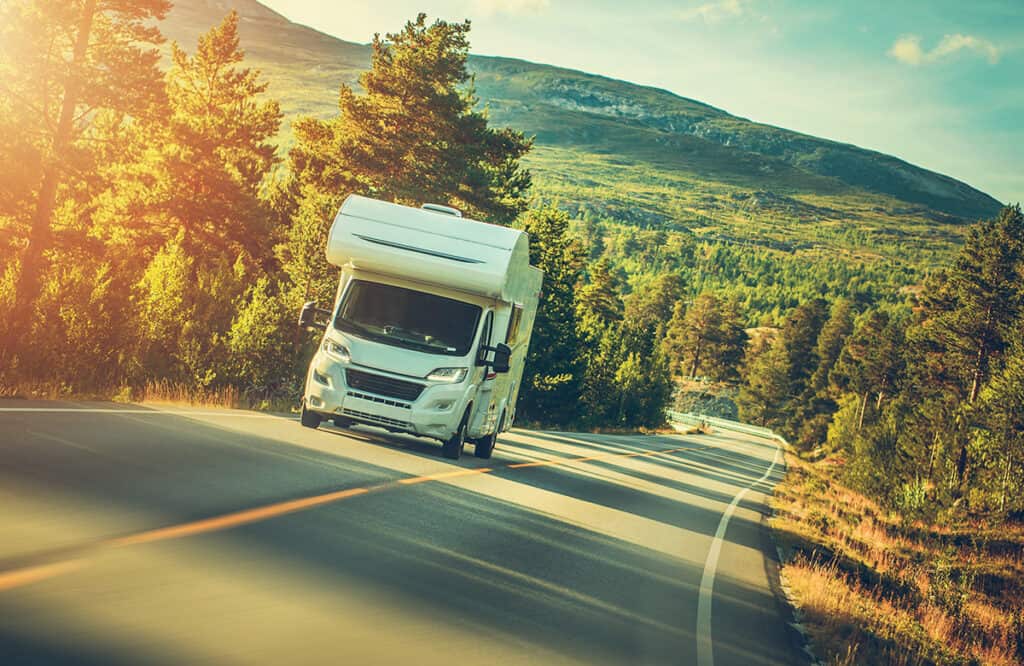
Tips for selling your motorhome privately fast
In order to sell your motorhome privately and quickly, you need to have it looking good and have everything in order. Here are some tips for when potential buyers come to look at it:
- Make sure you have the electricity plugged in so the buyer can see everything working.
- Show potential buyers any problems and get the sale in writing with ‘sold as seen’ or ‘subject
- to…’ on the receipt.
- If it’s winter, put the heating on, so it feels warm and cosy
- Clean your motorhome inside and out and remove as many personal belongings as possible
- Touch up/ fix as many small things as possible- the less it looks like there is to do, the less haggle room the buyer has.
- Remove any extras not being sold with the van, so there’s no confusion (like extra gas bottles, additional motorhome leisure batteries or solar panels etc.)
- Have the paperwork to hand for the buyer to look through, including past hab checks, MOTs and any work which has been done.
Letting Buyers test drive your motorhome
You know how nervous you would be to purchase an expensive vehicle without test driving it first, especially if you’re buying it privately. HOWEVER, many dealers don’t offer test drives- because getting insurance for it is a pain.
If you do choose to allow a prospective customer to test drive your motorhome then you MUST make sure that their insurance and driving license covers them to drive your vehicle.
You should also be aware that:
- The potential buyer can only drive your motorhome on your policy if you have it set for any driver to drive OR if you add the buyer as a named driver
- Their insurance will likely only cover them for third party risk- what if they scratch your motorhome or reverse into a wall?
- Are they legally allowed to drive a vehicle over 3.5t? Ask for proof and take a photo of their driving licence.
Personally, I’d never let someone I didn’t know drive my motorhome; I’d take them out for a drive instead so they can see it all working.
Selling your motorhome- how to get payment
Despite what I said earlier, the safest payment method of getting the money is using direct bank transfer. Do not let your motorhome go until the money is CLEAR in your account, not just pending. Do not accept cheques or other money services as they can be cancelled.
You CAN accept Paypal IF you sold through an auction site such as eBay, but be aware that if you ended the auction early, Paypal rarely offers protection for you as the seller. Also, Paypal charges fees for using their service, which can be a lot of money on something as expensive as a motorhome.
Cash purchases sound great, but be sure to use a forgery detecting pen (available from Amazon or eBay) and check EVERY. SINGLE. NOTE.
Selling your motorhome at auction
Auctions are a great way to both sell and buy second-hand motorhomes and campervans. They’re most often used by traders and dealers for one reason- vehicles sell for well under market value. With this in mind, be aware that you’re unlikely to get top price for your van, although you can specify a minimum amount so it doesn’t sell for less than that.
Remember that the auction house will take a commission, which will be a set percentage of the sale price- the more it sells for, the more you pay them. Also, selling your van is not guaranteed, especially if you have a high ‘minimum’ sale limit. But remember, if it’s not a ‘great deal’, traders are unlikely to bite, because they can’t make as much money when they sell on the vehicle.
There are some auctions available specifically for motorhomes, campers and caravans, but you can also add yours to most ‘vehicle’ auctions to see what happens. Google your nearest vehicle auction house and ask them for advice.
Motorhome Valuation- How to value your vehicle
Motorhomes are tough to value as, unlike cars, there is no definitive guide. There are so many types of motorcaravan, different models and extras available on the market. Combine this with a relatively small number of the same model produced each year, add in huge differences in mileage and it’s easy to see why valuing a motorhome is so hard. Even dealers struggle- they rely mainly on past experience and what’s popular with buyers right then.
Motorhome depreciation
Many people will tell you that your motorhome is going to be worth less than you paid for it and, to a point, they’re right. Motorhomes do depreciate. However, it doesn’t have to be a LOT less. If you’ve taken care of your vehicle, kept up with maintenance and it still looks good (and you haven’t added thousands of miles to it,) you could potentially sell it for only a little less than what you paid.
To get a starting point for valuation, call around some dealers and brokers. Even if you want to sell your motorhome privately, getting a quote from dealers will give you a baseline (and a bottom line; if they’re willing to buy your vehicle for £20,000, you don’t need to sell it to anyone for less than that.)
You can also check out other adverts for your model or a similar design- some sites even show past sales or auctions so you can get an idea.
Have a look at vans on dealer’s forecourts- are they selling a motorhome similar to yours? How does it compare in terms of age, condition, layout, mileage and extras?
Selling your motorhome- preparing it for sale
Whether you’re selling your motorhome to a dealer or privately, it’s worth doing some preparation
work to get your van looking as good as possible.
- Wash and wax your vehicle, including the roof and cleaning the windows. Add alloy protector to make your alloys really shine
- Make sure water and waste outlets work- empty all tanks
- Clean and empty toilet
- Ensure you have all keys and that all locks work freely
- Clear out all lockers and garage from everything you don’t want to sell with the van
- Fix any small issues, like broken light bulbs or motorhome window locks
- Clean scuff marks as much as possible.
- Empty and clean fridge
- Check carpets, seats, curtains are clean and free from stains
- Hoover throughout
- Use air freshener to stop any smells, including pet smells, food and mould
- Test gas, electric system and appliances like the fridge and cooker.
- Get all paperwork and manuals together- the more you have, the better
- Gather all tools, specific spanners or other useful accessories in one place.
- Get a hab check done, unless the dealer or buyer is happy to do one
Organising the Paperwork
Before you can sell your vehicle, you need to make sure the paperwork is in order and ready for the new buyer.
- For the best price, get a new MOT and hab check
- If you have a private reg and want to keep it, remove it from the van in plenty of time so you can get the new paperwork through
- Make sure the service history book has been stamped/ updated
- Have the V5C logbook accessible
- Keep all receipts/ manuals organised and easy to access
What to do after the Sale
Once you have agreed to the sale, make sure that you don’t hand over the keys until the money has cleared into your account.
When you sell the motorhome, you need to fill out the New Keeper section of the V5C and send it to the DVLA to tell them you are no longer the registered keeper of the vehicle (do not rely on the new buyer to do this.)
You should also organise a sales invoice, including any terms and conditions you’ve agreed with the buyer. Get them to sign it as proof they’re happy.
Make sure you cancel your tax for the vehicle if you pay monthly. If you’ve paid in advance, request a rebate from the DVLA. It is the new buyer’s responsibility to organise tax and insurance as soon as they become the new owner (ie- before they drive the vehicle home.)
Want more tips for motorhoming?
Here are some more ideas you might find useful:
- Essential Motorhome accessories every van should have
- Best Sat-nav for motorhomes or campervans
- Motorhome Security– tips for at home and on the road
- How to get Internet & wifi in a motorhome
- Europe- essential gear for travelling to Europe
- Best gift ideas for motorhome and campervan owners
Want FREE checklists, eBooks and additional tips to help? Visit our resource page

Kat never planned to buy a motorhome. She also never planned to quit her job as an air traffic controller, go touring around Europe in said motorhome, start one of the UK’s largest motorhome travel websites… or get a cocker spaniel.
Find out how she went from stuck in the rat race to being a digital nomad and inspiring thousands of people to have their own epic adventures here.
If you’d like to connect with Kat, send her an email or follow her adventures on social media.
